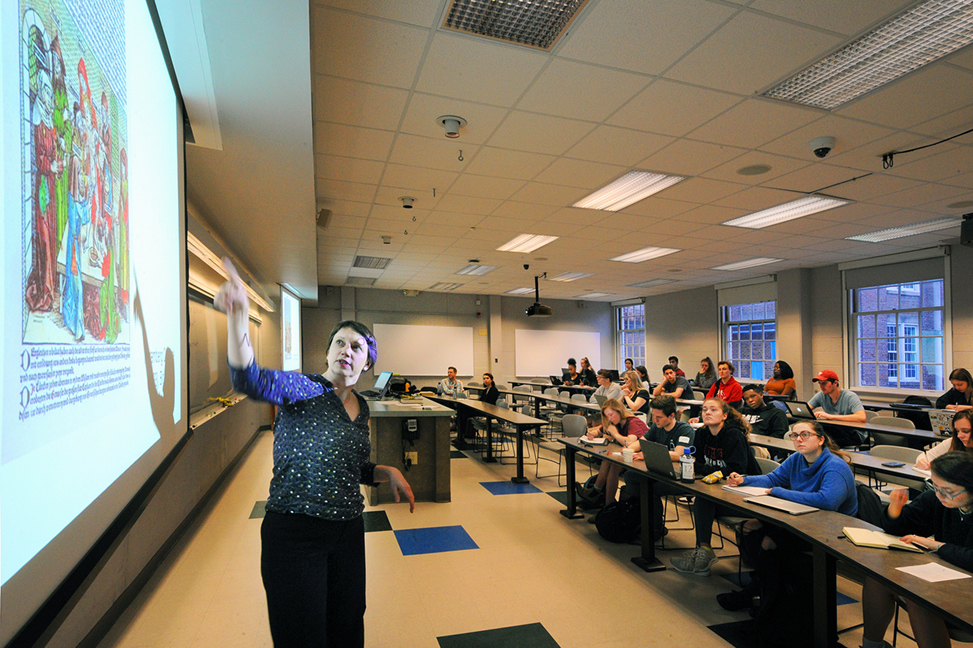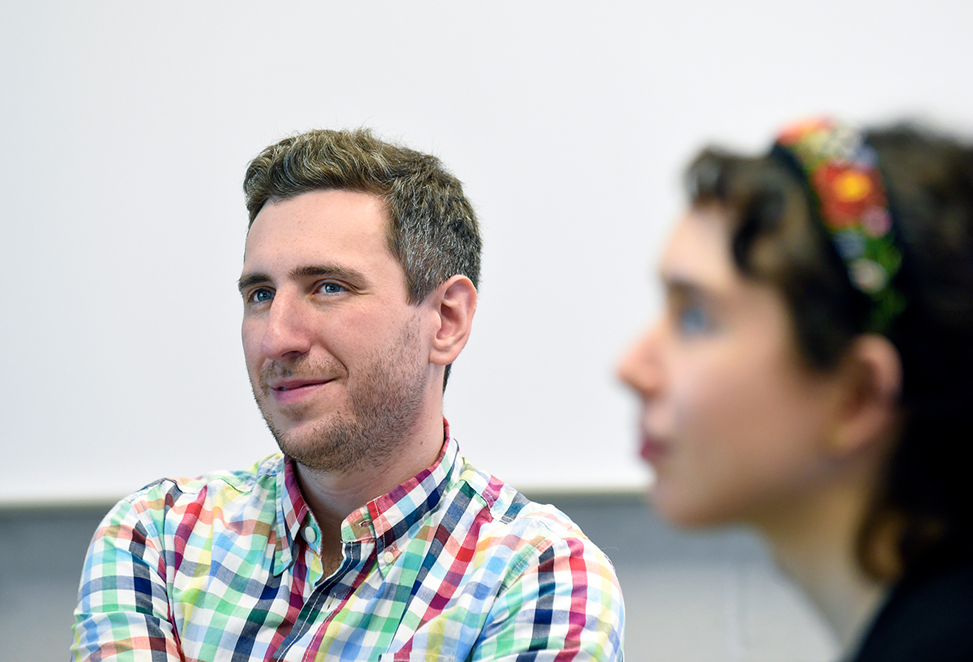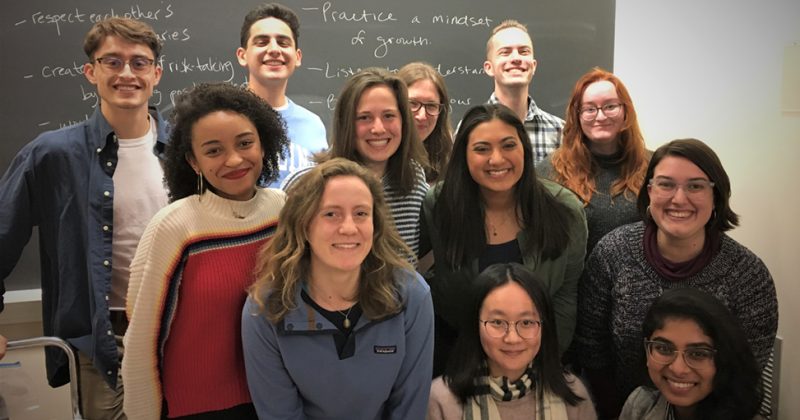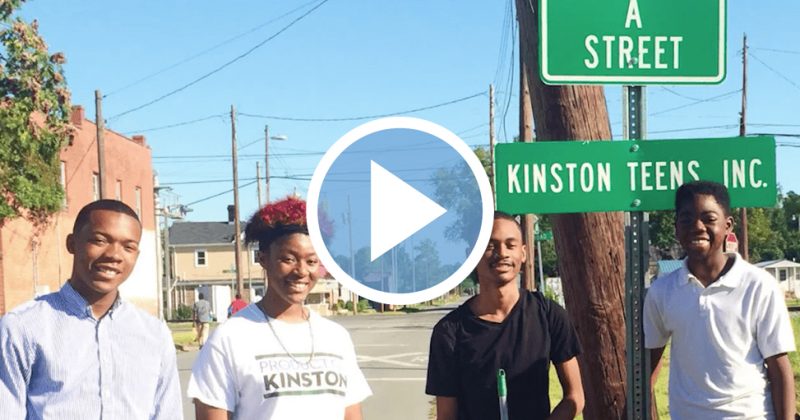
Ruth von Vernuth, director of the Carolina Center for Jewish Studies, delivers a guest lecture in the "Confronting Antisemitism" class.
“Topics in Jewish Studies: Confronting Antisemitism” is a new, one-credit-hour course that takes a broad look at antisemitism in history, our contemporary world and on campus. The course examines the intersections between antisemitism and other forms of racism and identifies tools that can be used to counter antisemitism.
The class sessions feature guest speakers and discussions on different aspects of this persistent form of hatred, and students write reflective essays in response to the lectures. Students will conduct a formal review of websites and media outlets that perpetuate antisemitic messaging. The course will conclude with a roundtable discussion on how to address antisemitism at Carolina.

Requested by students
The idea for the course was initiated by an undergraduate student last semester. With the support of the College of Arts & Sciences and its Countering Hate: Overcoming Fear of Differences initiative, instructor Max Lazar developed the course over a few weeks in time for students to register for the spring course.
“Because the course was added to the spring schedule at the last minute, we weren’t sure how many students would actually enroll,” said Lazar, a Ph.D. candidate in history. “But during the winter break, we saw an impressive wave of enrollment and had to increase the class size limit. Then, right before the start of the spring semester, we had the fantastic problem of scrambling to find a larger classroom to accommodate nearly 50 students. The students really responded to this opportunity and are eager to look at this topic from a scholarly point of view.”
Leveraging campuswide expertise
When creating the course, Lazar said his first challenge was to determine how to cover so much content with just one hour’s class time each week.
“When Kenneth Stern, director of the Bard Center for the Study of Hate, visited campus in November for the College’s Countering Hate signature lecture, I was able to meet with him to get ideas and resources,” added Lazar. “All of us involved in the planning process soon realized that this course demanded experts from many different disciplines if the students were going to digest the complicated topic through history while also developing tangible skills in identifying antisemitism and understanding current events.”
As a result, students are learning from weekly guest speakers who address a wide range of topics — from medieval texts to contemporary social media, from medical quotas, legal ethics and white supremacy to Holocaust denial.
The course supplements lectures and readings with videos from the Reconsidering Antisemitism conference that the Carolina Center for Jewish Studies hosted in 2016. For example, before the first day of class, the students watched religious studies professor Bart Ehrman’s lecture on the origins of Christian anti-Judaism. This was followed by a lively discussion with a guest speaker from the department of religious studies. Other guest speakers have come from the UNC departments of history, anthropology, English and comparative literature, global studies, Germanic and Slavic languages and literatures, and the schools of information and library science and law. Students are also learning from several visitors to campus.
A cohort of allies
Lazar designed the course so that students would understand the underlying features of different types of prejudice toward Jews as well as how antisemitism can creep into everyday life. The class also examines antisemitism’s relationship to expressions of hate toward other groups. Lazar said he hopes that as a final takeaway, the course inspires students to become allies against hate speech, showing leadership both on campus and long after their time at Carolina.
Max Lazar specializes in modern German and Jewish history. Before arriving at UNC, he was a Fulbright teaching assistant in Austria and worked as the Richard J. Sonnenfeldt Fellow at the American Jewish Committee’s Berlin Ramer Institute for German-Jewish Relations.
By Karen M. Gajewski, Carolina Jewish Center for Jewish Studies
Published in the Spring 2020 issue | The Scoop
Read More

Read more books: Explore good reads from faculty and alumni (spring 2020)
Lucean Arthur Headen: The Making of a Black Inventor and…

Mellon-funded undergraduate fellows develop new public humanities projects
The inaugural class of Humanities Futures undergraduate fellows began work…

Meet a Tar Heel: Chris Suggs, Class of 2021
Service has been a hallmark of Chris Suggs’ teenage years…

